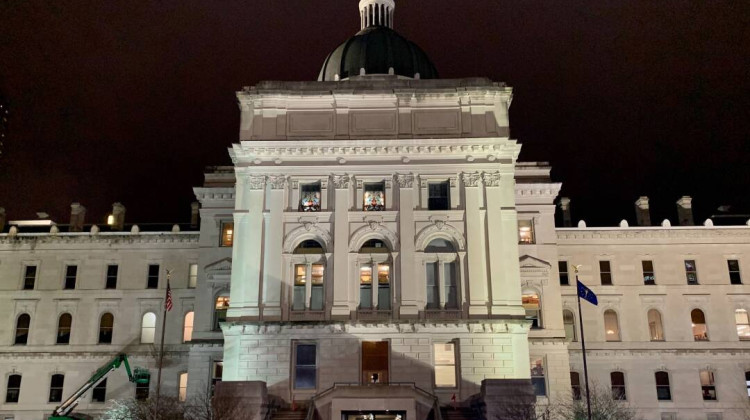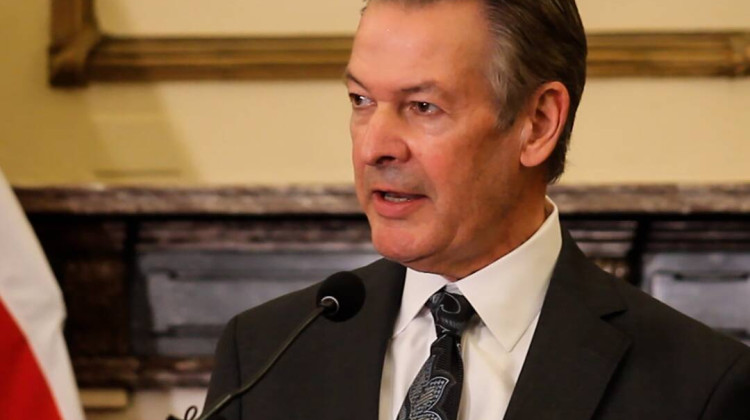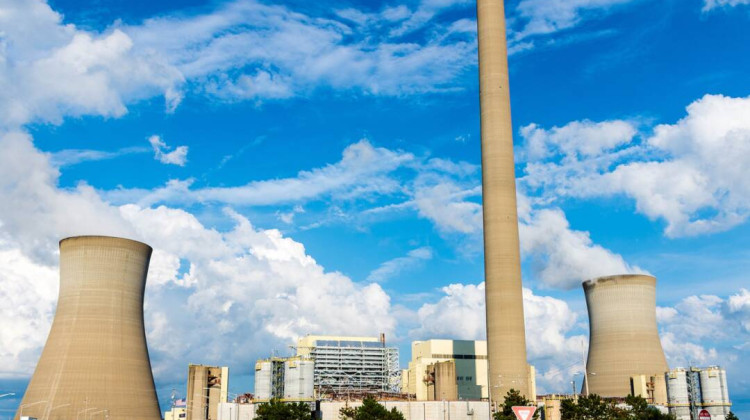
An aerial view of Wabash Valley Resources LLC in Terre Haute along the Wabash River.
Courtesy of Google MapsAn amendment to a Senate bill would protect an industrial company from getting sued if its plans to put carbon emissions underground goes awry. The hydrogen production facility in Terre Haute is part of a state pilot program to test out carbon capture and storage technology.
The amendment to SB 373 would prevent Wabash Valley Resources LLC from getting sued for any perceived risk if the plume of carbon dioxide it injects underground moves to neighboring properties where it's not supposed to go. Landowners could still claim damages if they could prove it caused physical harm to them or their property or prevented them from using their property.
Managing partner for the company, Nalin Gupta, said the CO2 would be stored so far underground that it shouldn’t affect the neighbors.
“How many people would sue an airplane that flies over your head 8,000 feet?" Gupta asked.
But activists and some Vigo County residents are concerned the technology could pollute drinking water sources and cause earthquakes.
Rep. Ryan Dvorak (D-South Bend) said the state doesn’t waive liability for other industrial businesses like steel mills and car manufacturers.
“If an enterprise needs to request some sort of immunity in order to conduct business in the state, that should always be a big red flag," he said.
David Bausman, Indiana Department of Natural Resources' legislative and public policy director, was also not comfortable with the language in the amendment — calling it vague, confusing, and broad.
"We believe could lead to situations where people's property — or in this case, the state's property — could be taken and without them, the state, having a recourse in those situations," he said.
READ MORE: How Do I Follow Indiana's Legislative Session? Here's Your Guide To Demystify The Process
Join the conversation and sign up for the Indiana Two-Way. Text "Indiana" to 73224. Your comments and questions in response to our weekly text help us find the answers you need on COVID-19 and other statewide issues.
Gupta said funding for the carbon storage project can’t move forward if the bill doesn’t pass. We reached out to Wabash Valley Resources LLC for clarification on what barriers the company is facing to start the pilot program, but didn't hear back in time for publication.
Contact reporter Rebecca at rthiele@iu.edu or follow her on Twitter at @beckythiele.
Indiana Environmental reporting is supported by the Environmental Resilience Institute, an Indiana University Grand Challenge project developing Indiana-specific projections and informed responses to problems of environmental change.
 DONATE
DONATE








 Support WFYI. We can't do it without you.
Support WFYI. We can't do it without you.